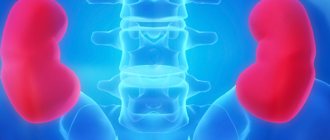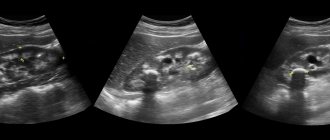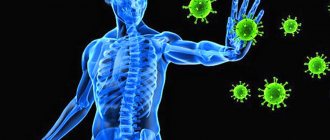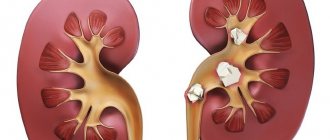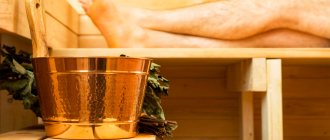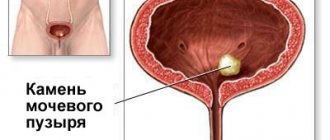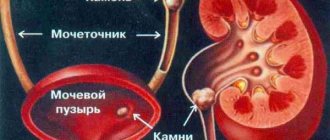August 29, 2010
The functioning of the entire human body directly depends on how the kidneys feel.
The functioning of the entire human body directly depends on how the kidneys feel. After all, this is a natural filter through which toxic compounds, excess nutrients and microelements, substances foreign to the body and the end products of protein metabolism are removed from the blood: urea, uric acid and much more. Therefore, competent and timely prevention of urolithiasis
and other kidney diseases.
In what cases is it necessary to prevent kidney disease using folk remedies?
The kidneys, filtering the blood, form urine, which is subsequently collected in the cavity system (calyces, pelvis), discharged into the bladder through the ureters, then out. Any disturbances in the functioning of this organ cause serious discomfort and reduce a person’s quality of life:
- dysuria (impaired urination: incomplete, frequent, rare, painful, uncontrollable, difficult, intermittent, etc.);
- cloudy urine, hematuria (presence of blood), pyuria (presence of pus);
- hyperhidrosis (excessive sweating);
- swelling of the face, legs, arms, blood pressure surges;
- pulling, cutting, stabbing, etc. pain in the lower back, radiating to the groin, back;
- general deterioration of health: weakness, decreased vision, headache, etc.
To prevent all these symptoms, kidney prevention at home is necessary. It is especially necessary for people who are more susceptible to various kidney pathologies, because are at risk:
- promiscuous sex life;
- frequent colds, hypothermia;
- errors in nutrition (fatty foods, unbalanced and similar foods, excess carbohydrates in the diet, etc.), overeating, excess weight;
- bad habits (alcohol, drugs);
- taking medications (for example, antibiotics);
- pregnancy (the kidneys of a pregnant woman are subject to heavy load, because they remove waste products for two).
People at risk need to closely monitor their health, especially the functioning of the urinary system. Prevention for the kidneys with folk remedies will help improve the functioning of organs and prevent the occurrence of serious pathologies.
Urinary system. Risk factors and disease prevention
THE MOST COMMON DISEASES OF THE URINARY SYSTEM
- Infections of the urinary system (urethritis, cystitis, pyelonephritis).
- Urolithiasis disease.
- Bladder cancer.
RISK FACTORS
- Failure to comply with personal hygiene rules. Violation of the rules of genital hygiene leads to a significant increase in the risk of developing an infectious disease of the urinary system.
- Infections of the genitourinary tract. Untreated infections and diseases of the urinary system can contribute to the development of bladder cancer.
- Unprotected casual sex. Unprotected casual sex is a major risk factor for sexually transmitted infections.
- Pregnancy. During pregnancy, there is increased pressure from the uterus on the bladder, which leads to increased urination; in addition, the likelihood of cystitis (or complications of chronic cystitis) increases. The development of asymptomatic bacteriuria during pregnancy, which is typical in 7% of cases, can lead to pyelonephritis.
- Poor nutrition. An excess of red meat, fatty and fried foods, baked goods, and carbohydrates in the diet worsens the immune system and disrupts the functioning of the digestive tract, and excessive salt content in the diet disrupts water-salt metabolism in the body. All this negatively affects the urinary system.
- Smoking. Smoking is one of the causes of bladder cancer.
- Overweight. Excess weight significantly increases the likelihood of infectious diseases, increases the risk of disorders in the reproductive system, and increases the load on the kidneys. Digestive problems, which are a sure companion of excess weight, also contribute to the development of diseases of the urinary system.
- Low physical activity. Lack of physical activity creates serious problems for the urinary system: stagnation of blood in the pelvic area, relaxation of the abdominal muscles, decreased immunity - this is not a complete list of the possible consequences of a passive lifestyle.
- Arterial hypertension. High blood pressure leads to deterioration of the condition of blood vessels, including the vessels that supply the urinary system and the kidneys. Often, diseases of the urinary system are aggravated by arterial hypertension.
- Diabetes. Patients with diabetes have a 4-5 times increased risk of developing infectious and inflammatory diseases of the urinary system. This is due to neuropathy, leading to decreased bladder tone and the presence of glucose in the urine, which creates favorable conditions for bacterial growth.
PREVENTION
- Don't get too cold.
- Don't sit in the cold.
- During the cold season, do not wear short jackets.
- Do not wear tight underwear or clothing.
- Maintain intimate hygiene carefully.
- Don't abuse alcohol.
- Drink at least 2 liters of fluid per day.
- Eat right. Do not overuse spicy, salty, smoked, pickled and fried foods. Normalize your diet: let it contain enough vegetables, fruits, complex carbohydrates, fish, do not abuse sweets and fatty foods, and salt. Antioxidants found in fruits and vegetables reduce the risk of developing malignant tumors.
- Do not overuse coffee and tea as they have a diuretic effect.
- Eat foods rich in vitamins A, E and C, they are good for the kidneys and bladder mucosa.
- Follow basic hygiene rules. Shower regularly, wear natural underwear and clothes that fit.
- Treat urinary tract infections promptly. Even a seemingly insignificant disease (mild cystitis, for example) can become more complicated in the future. One scenario for such a complication is infection entering the kidneys and developing pyelonephritis.
- Normalize your level of physical activity. Movement should be included in a mandatory program for the prevention of diseases of the urinary system: physical activity improves immunity and keeps muscles toned. Move at least 150 minutes a week.
- Stop smoking. Systematic smoking increases the risk of developing a malignant bladder tumor by 4 times.
- Get rid of excess weight. Normalize your weight by following the rules of safe weight loss (weight loss norm is 1 kg for men and 0.5 kg for women per week), and continue to monitor your weight, not allowing it to deviate from the optimal value by more than 5-10% .
- Be responsible with your sex life. Most genitourinary infections are transmitted sexually, which means that if you choose a poor sexual partner or have unprotected sex, you put yourself at serious risk of getting sick.
- Be attentive to your health during pregnancy. During pregnancy, be especially attentive to your health; if you feel unpleasant or painful sensations during urination, consult a doctor, and do not allow complications to develop.
- Control chronic diseases. If you suffer from chronic diseases, such as diabetes or arterial hypertension, monitor the dynamics of key indicators (blood sugar levels, pressure), undergo regular medical examinations, consult with your doctor and follow all his recommendations.
Prolapse of the kidney or nephroptosis is its pathological displacement down 2 or more vertebrae during movement or any change in the position of the human body.
Kidney prolapse can develop:
- due to a decrease in intra-abdominal pressure (decreased tone of the abdominal muscles, for example, after multiple or multiple pregnancies);
- with weakness of the ligamentous apparatus of the kidney;
- with a significant decrease in the thickness of the fat capsule (due to infectious diseases, after a sharp decrease in body weight);
- after an injury in the abdomen or lower back (ligament damage, formation of a perinephric hemangioma, pushing the kidney away from its usual location).
The risk of developing nephroptosis in women is higher than in men (approximately 15:1); the right kidney prolapses more often than the left.
If nephroptosis is treated late or incorrectly, some complications may occur. They are caused by ischemia of the renal tissue, the growth of edema, as well as dysfunction of urination. The most likely consequence is pyelonephritis, which is an inflammation of the pelvicalyceal part of the kidneys. Due to the twisting of veins and lymphatic vessels, veno- and lymphostasis can occur.
In the early stages of development, nephroptosis can be treated quite simply - just wear an elastic bandage during the day, as well as engage in special physical therapy that strengthens the walls of the abdominal cavity. It is important to remember that in case of adhesions in the kidneys, wearing a bandage or corset, as well as physical therapy, are contraindicated.
General recommendations for the prevention and treatment of kidney disease at home
To ensure that kidney prevention at home in men and women is as effective as possible, it is recommended to follow the following recommendations in combination with taking herbs:
- Avoid a sedentary lifestyle to prevent hydronephrosis - stagnation of urine in the kidneys.
- Follow the rules of personal hygiene to prevent infection from entering the urinary system.
- Monitor the quality and diet - table No. 7 is recommended - reduce protein foods, salt in the diet, increase the amount of fiber, vegetables and fruits. Eat small and often.
- Avoid hypothermia (especially during cold spells and epidemic outbreaks) - to prevent inflammation and infection.
- Treat diseases in a timely manner. Untreated pathologies often cause infection to spread throughout the body.
- Increase your water consumption - at least 1-2 liters per day. The liquid allows you to quickly flush the urinary tract and reduce the concentration of harmful substances in the urine, prevent acidification of the environment, inflammatory processes and other kidney diseases. However, drinking at night or in the evening is not recommended, so as not to provoke swelling.
10568 Tatyana Kuritskaya 02/27/2018
How do they work?
A person has two kidneys, they look the same and are shaped like a bean. In the average person, the kidneys are located symmetrically on both sides of the spine in the lumbar region. Despite their modest size, the kidneys pump blood through themselves extremely actively - in one minute, almost a quarter of the blood that the heart throws out passes through them - about a liter. In the kidneys, blood plasma passes through the membrane and cells of the renal tubules. At the same time, it is cleansed of more than 150 harmful and unnecessary substances in the body. This “garbage” in the form of urine collects in the renal pelvis and is sent further along the ureter to the bladder. Typically, a person produces about 1.5 liters of urine per day. If it's hot outside and the body loses fluid and salts through sweat, the amount of urine decreases. And urine output increases
with excessive consumption of fluids, caffeine, diuretics and diabetes.
If an excess of mineral substances passes through the kidneys, or they do not have enough fluid to remove harmful substances, stones begin to form in the pelvis - urolithiasis
.
Staying hydrated is the key to healthy kidneys
26.Mar.2021
Nisso Tolibovna Pavlova
, head of the medical rehabilitation department of the Nyagan city children's clinic, has recently been working as a nephrologist. I consciously chose my narrow specialty – nephrology. As a doctor, a pediatrician often encounters infectious diseases. Gastroenteritis, rotavirus, the same hepatitis. I knew only superficially about kidney diseases. I decided to study for myself something that I was not a pro at. I learned that there is a lot of physics and biochemistry in the work of the kidneys. Studying from the very bottom is considered an incredibly interesting event. It is a great honor for her to be a nephrologist.
«It is believed that nephrologists
They are not divided into “adults” and “children,” says the doctor.
And, nevertheless, the child’s body has different body capabilities. In children, it has more compensatory capabilities, but in the case of a nephrological disease, an adult organism, as a rule, has already exhausted its capabilities. However, nowadays the kidneys of children suffer no less than those of adults. And all because of poor nutrition and poor drinking habits. Our children don’t know what they eat or drink. And this is expressed not only in various gastroenteritis, dermatitis, etc. Metabolic disorders occur,
clinical tests are full of leukocytes and salts. And all because no one maintains water balance in the body. And my preventive task today as a nephrologist is to convey to parents the essence of the child’s compliance with the drinking regime.”
Violation of drinking regime
leads to metabolic disorders in the human body and the child, respectively.
The work of all living cells slows down
, biochemical processes are inhibited, and this leads to disruptions in their work. You need to know and remember that the main function of the kidneys is to filter the blood. And if it is “thick” due to lack of fluid, then the kidneys are damaged by allowing such “toffee” to pass through. And as a result, metabolic disorders occur, clinical tests are full of leukocytes and salts.
In pediatric urology
dysmetabolic nephropathies account for about 27-64% of all diseases of the urinary system in children; In pediatric practice, signs of metabolic disorders in urine are found in almost every third child. Children with dysmetabolic nephropathies are at high risk for the development of interstitial nephritis, pyelonephritis, and urolithiasis.
Experts insist
so that the daily menu consists of 70% water. Not from tea, jelly, milk, or worse, canned juices, but from plain drinking water. Prevention of dysmetabolic nephropathy in children is also based on compliance with dietary nutrition and drinking regime. In parallel, it is necessary to be observed by a pediatric nephrologist and undergo regular follow-up examinations.

